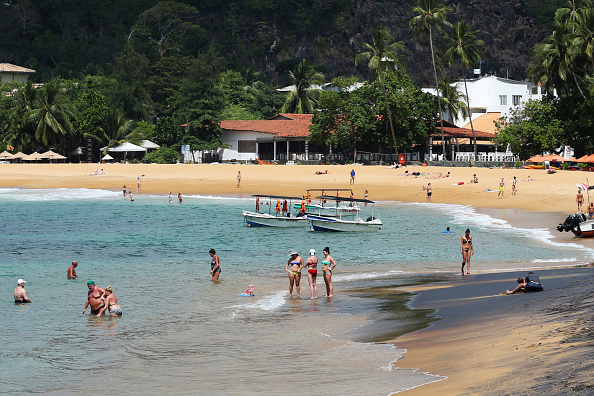
By: LekshmiSajeev
The cancellations started before the dust had settled on the hotels and churches hit by suicide bombers in Sri Lanka as tourists and operators pressed the panic button.
Sanath Ukwatte, chairman of the colonial-era Mount Lavinia hotel in Colombo, said he lost about 30 per cent of his bookings within days of the Easter Sunday attacks that killed 253 people.
Many holidaymakers got the first plane out of Colombo after the blasts – at least 40 foreigners were among the dead – raising fears for a tourism industry that had managed to move on from the shadows of a decades-long civil war.
The United States, Britain, Australia, India and Israel have all warned their nationals against visiting, while the Netherlands is organising a special flight to evacuate hundreds of Dutch tourists.
On Friday (26), European travel giant TUI announced it had stopped taking bookings for the South Asian country.
And the crisis could get worse before it gets better for the island nation, whose palm-fringed beaches and mountain tea plantations were recently named the best place to visit in 2019 by the Lonely Planet guide.
Sri Lanka’s Finance Minister Mangala Samaraweera had hoped tourism would earn a record $5.0 billion (£3.9 bn) this year, up from $4.4 bn (£3.4 bn) in 2018. He thinks the attacks could now see the country lose up to one-third of that.
Tourism accounts for about five per cent of the economy, with Britain, India and China the main markets. Official figures show tourist arrivals in the first quarter of this year jumped 4.6 per cent to 740,600 from 2018.
But with armed guards now a fixture in some Colombo hotels and cancellations flooding in after the carnage unleashed by coordinated suicide attacks, Samaraweera must work out a rescue plan for establishments now facing ruin.
“We expect a 30 per cent drop in arrivals and that means a loss of about $1.5 bn (£1.7 bn) in foreign exchange,” he said on Friday.
